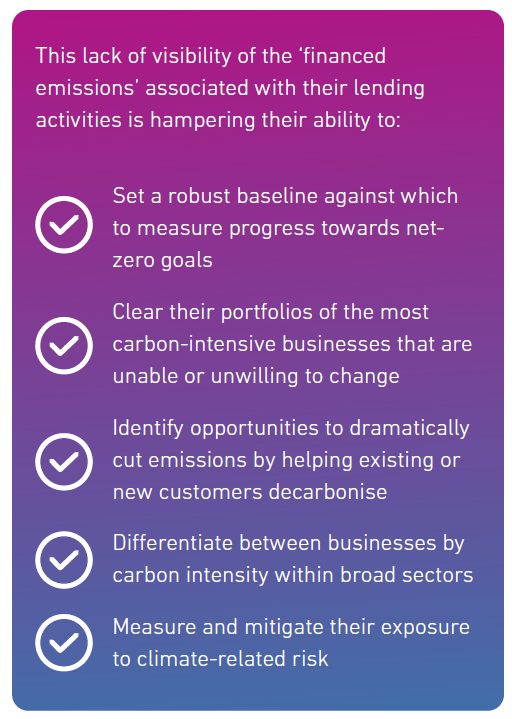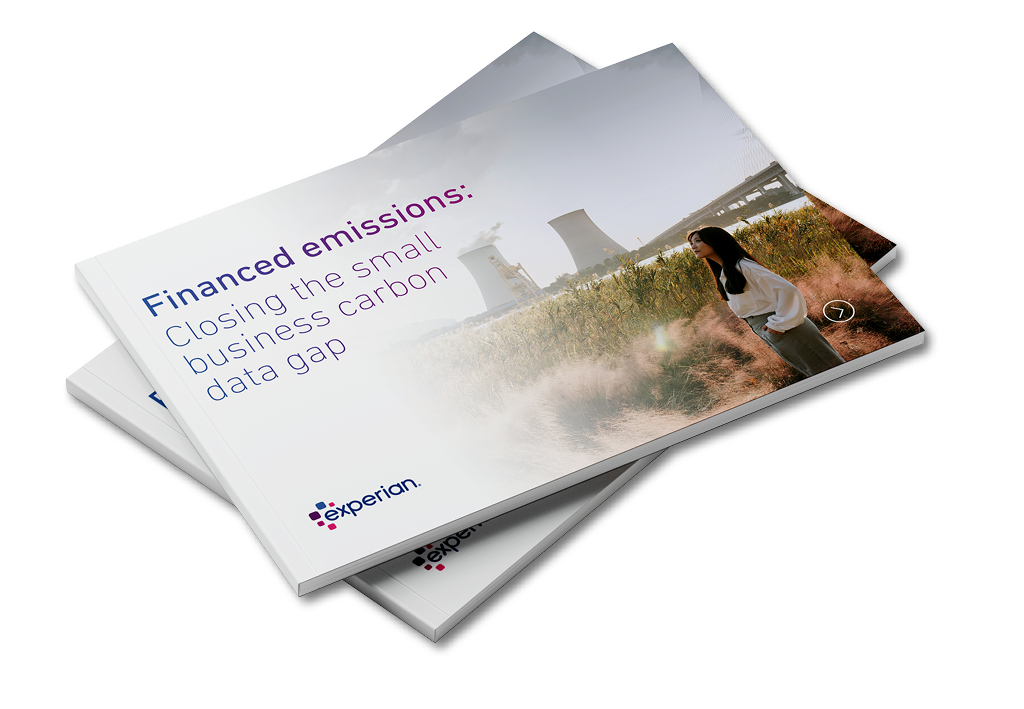Financed emissions: Closing the SME carbon data gap
In this e-book, we outline creative strategies to reduce financed emissions.
Download the e-bookFinancial institutions are under pressure to make meaningful progress towards net zero pledges. But they can only improve what they can measure.
To meet their climate goals, lenders need accurate financed emissions data from their business customers. Yet most companies in their portfolios are small and medium-sized enterprises (SMEs) that are currently unable to provide this information.
As a result, lenders are relying on broad-brush sector-level estimates that fail to provide the deep insights that would enable them to take effective action.
In this e-book, we outline how this problem is hampering carbon reduction efforts and introduce Experian’s solution: a detailed emissions profile for every single SME in the UK.
In this report, we cover:

Baseline blind spots: SMEs
SMEs pack a punch, generating 33% of the UK’s GHG emissions and around 50% of business emissions
Baseline-setting methods: Inadequate solutions
Lenders are unlikely to get responses from a high enough proportion of customers, leaving huge holes in their datasets.
Creative strategies rely on richer insight
What strategies could help reduce financed emissions?
Futureproofing financed emissions
Experian ESG Insight is primed to take advantage of new developments, ensuring lenders continue to enjoy the highest possible visibility of SME emissions.
A sneak peek into:
Financed emissions: Closing the small business carbon data gap
Setting financed emissions baselines: an urgent challenge for lenders
 Most banks in the UK have publicly pledged to cut greenhouse gas (GHG) emissions to net zero by 2050, often with an interim target to halve emissions by 2030. Failing to honour these commitments could ultimately erode their stock price or threaten the wholesale funding upon which they depend.
Most banks in the UK have publicly pledged to cut greenhouse gas (GHG) emissions to net zero by 2050, often with an interim target to halve emissions by 2030. Failing to honour these commitments could ultimately erode their stock price or threaten the wholesale funding upon which they depend.
But there’s a problem. Commercial lenders don’t have the data to accurately measure the emissions that represent more than 95% of their total carbon footprints – those generated by their business customers.
The challenge is that 99% of UK businesses are small or medium-sized enterprises (SMEs), many of which lack the resources to calculate their emissions.
In the absence of precise data, lenders are forced to rely on blunt estimates that lump business customers together by sector. As a result, they are struggling to gain a clear view of their portfolios and pinpoint where they should focus their net-zero efforts.
Did you enjoy the read?
Download the report "Financed emissions: Closing the small business carbon data gap"
For further information or to understand more about how ESG Insight can help your business, contact us at businessuk@experian.com.









